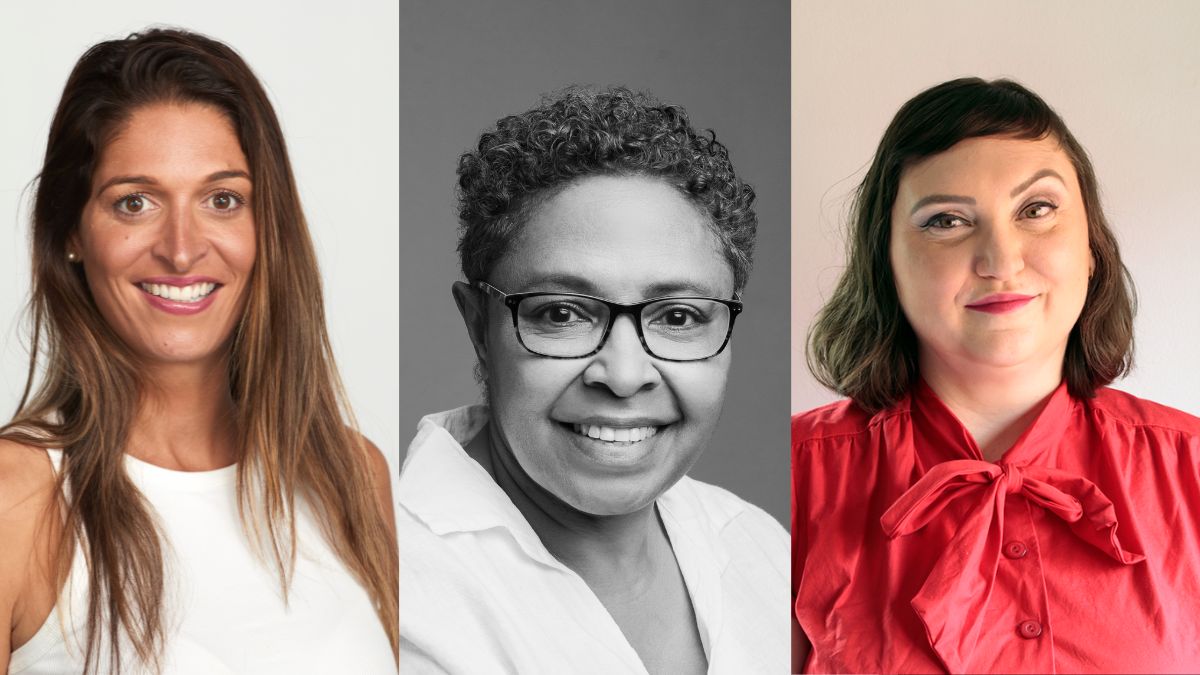
The three researchers bring expertise in healthy ageing, history and sexual health.
The Scientia Program, part of Strategy 2025+, supports UNSW's culture of research excellence by attracting and retaining researchers with exceptional track records. UNSW welcomes Ebony Lewis, School of Population Health, UNSW Medicine & Health; Dr Leah Lui-Chivizhe to the School of Humanities & Languages, UNSW Arts, Design & Architecture; and Heather McCormack to The Kirby Institute, UNSW Medicine & Health.
“I am excited to welcome these stellar Indigenous appointments to the UNSW Scientia Program. Their appointments bring a wealth of knowledge, expertise and enthusiasm to our community. We look forward to the valuable contributions they will make in their respective fields,” says Professor Leanne Holt, Deputy Vice-Chancellor Indigenous.
“UNSW is committed to continuing to increase our Indigenous academic workforce aligned to innovation and excellence in research and academia.”
Since the establishment of the Scientia Program in 2017, UNSW has appointed more than 150 researchers to the program, of whom 56 per cent are female and 10 per cent are Aboriginal and/or Torres Strait Islander. Career development is an important feature of the program.
“The Scientia Program supports outstanding researchers on their trajectory to research leadership through the provision of tenure-track contracts, an annual development fund, mentoring and professional development opportunities. We are excited to support these three new Scientia academics,” says Professor Dane McCamey, Pro Vice-Chancellor Research.
Ebony Lewis, School of Population Health, UNSW Medicine & Health
Ebony Lewis is an early career Aboriginal researcher with a passion for improving health equity and greater access to opportunities for older adults, underserved groups and communities. She has extensive experience in healthy ageing research and older adult assessment in clinical practice.
Since 2015, she has worked on a research program to improve end-of-life care for older people, caregivers and health professionals. Her current research examines frailty and healthy ageing through the life course, with a strong focus on culturally appropriate strategies to achieve healthy ageing in First Nations communities.
She is a lecturer in the School of Population Health and stream convenor of the Aboriginal Health and Wellbeing Specialisation in the Master of Public Health. She co-leads the School’s Aboriginal and Torres Strait Islander research theme.
Dr Leah Lui-Chivizhe, School of Humanities & Languages, UNSW Arts, Design & Architecture
Historian and curator Dr Leah Lui-Chivizhe is a Torres Strait Islander with enduring connections to the eastern and western Torres Strait. She has taught in Indigenous Studies since 2001 and was a postdoctoral fellow in History at the University of Sydney from 2017-2021 and Senior Lecturer in Indigenous Histories at the University of Technology Sydney (UTS) from 2022-23.
Her research focuses on how 19th century collections from the Torres Strait can revitalise and reconnect Islanders with their pre-colonial histories of human and more-than-human relations and contribute to decolonial praxis of collector institutions. Her current projects include Reclaiming Turtles All the Way Down and Fault Lines: Imagining Indigenous futures for colonial collections. Her book, Masked Histories: Turtle shell masks and Torres Strait Islander people, was highly commended for Australian History in the 2023 NSW Premier’s History Awards.
Heather McCormack, The Kirby Institute, UNSW Medicine & Health
Heather McCormack is a Wiradjuri woman living and working on Bidjigal country, with family ties to the Central West of NSW. She comes to UNSW following a 15-year career in sexual health, most recently leading sexual health programs for NSW Health aimed at Aboriginal people, culturally and linguistically diverse people and young people.
Her research has focused on the intersection of health literacy and the accessibility of publicly funded sexual health services and on optimising routine health assessments delivered in the Aboriginal Community Controlled Health Service (ACCHS) setting to increase testing for STIs and HIV for Aboriginal and Torres Strait Islander young people. She has a particular interest in health equity and accessibility, as well as the use of novel technologies to prevent, test for and treat STIs and HIV.
- Log in to post comments
